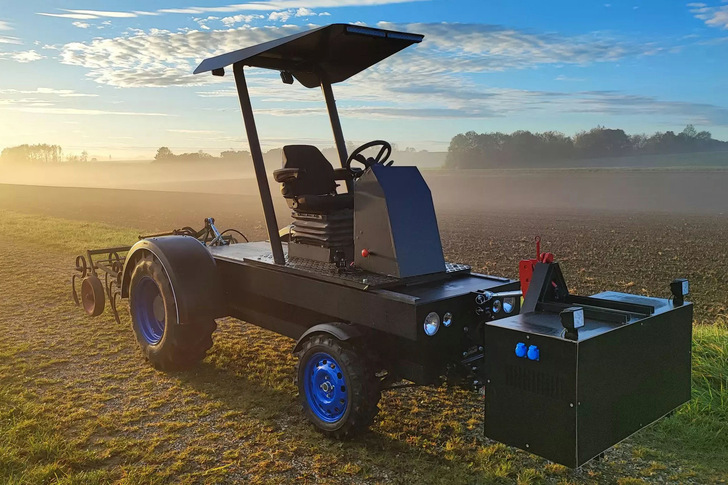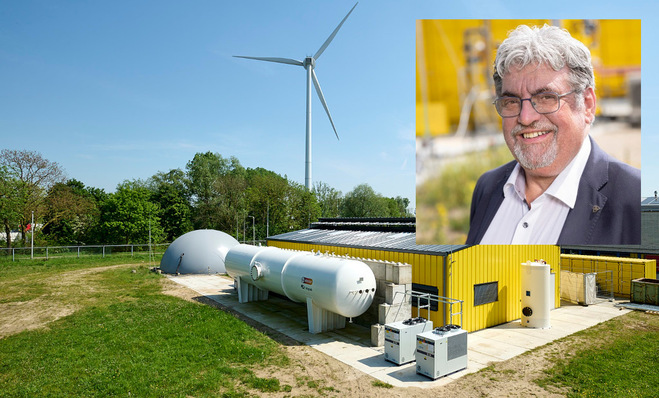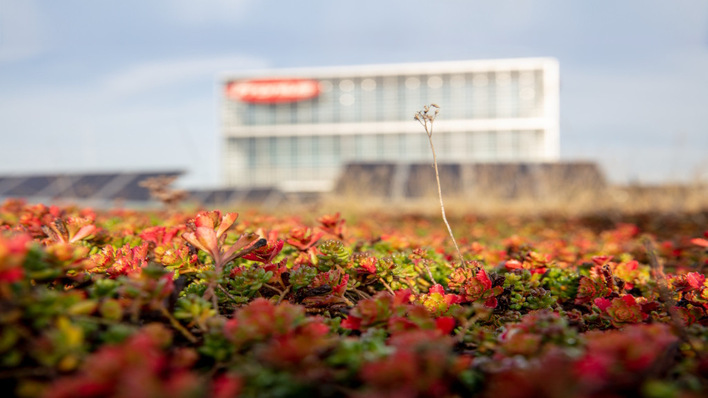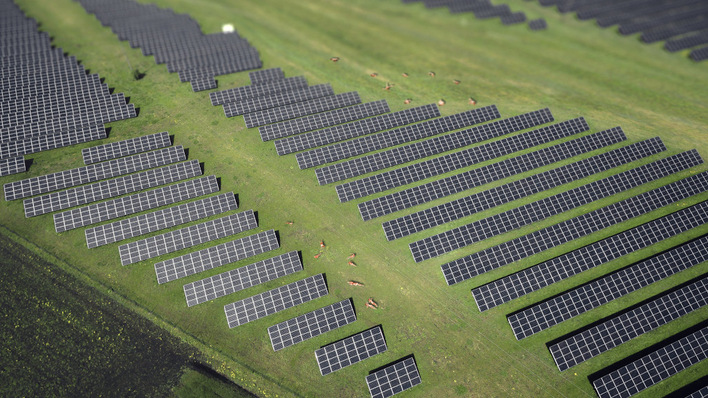Agriculture is one of the sectors of the economy that is feeling the effects of climate change most directly. Extreme weather events are cutting yields in the fields and making planning increasingly difficult for farmers. However, tractors and agricultural machinery continue to be powered by diesel across the board. This is a problem that many manufacturers of agricultural machinery have not yet been able to solve across the board due to various challenges, such as cost pressure or lack of access to technology. This is where the TUMtrac research project comes in. TUM researchers are working on a modular development kit for all-electric tractors. The aim is to support agricultural machinery manufacturers across all brands in the development of new tractor concepts. They will be presenting one possible variant at the Agritechnica trade fair.
See also: Old river tug to be electrified - Leclanché supplies the battery
The team is focussing on small to medium-sized tractors, such as those used in fruit growing. "We see the possibility of electrification, especially for tractors that have to work many hours but only need to deliver a low constant output. Hop and wine growing are ideal examples of this. Thanks to its modular structure, our tractor construction kit should be able to simulate and evaluate very different tractor concepts," explains Korbinian Götz, project manager of the research project at the Chair of Automotive Engineering at TUM. Tractors that can be designed with the modular system should be particularly suitable for 1,000 operating hours or more per year.
Modular design of the functional carrier with exchangeable battery
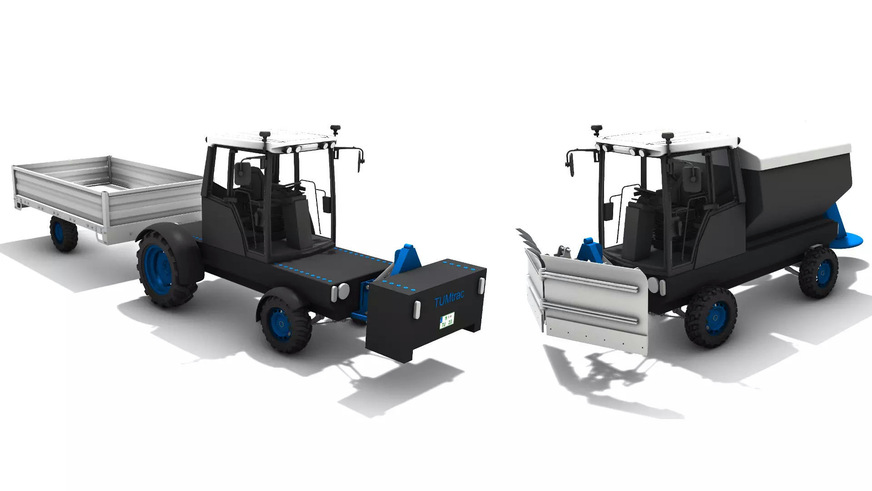
TU Munich
The special feature of TUMtrac is its modular design, which can be customised according to the area of application. The functional carrier exhibited at the trade fair shows what an overall concept could look like in the future. A standardised floor assembly forms the basis of the tractor. This is supplemented by an interchangeable battery pack, which can be positioned at the front or rear of the vehicle depending on the application. The battery thus serves as a power source and at the same time as a counterweight for attachments such as mowers or snow ploughs.
Also interesting: Baywa r.e. plans six new agri-PV projects in five countries
On the one hand, the interchangeable battery reduces the weight of the vehicle, as it can be smaller than a permanently installed battery and therefore only the power that is actually needed is carried. Secondly, the batteries can also act as a kind of giant power bank. This means that electricity generated by the farmers themselves via photovoltaics or wind power can be buffered and used for their own work. "What is currently still a marginal phenomenon in the car sector can be used specifically for the design of our tractor system in the agricultural sector. The exchangeable battery can offer agricultural businesses real added value through greater flexibility in use," says Prof Markus Lienkamp, Head of the Chair of Vehicle Technology at TUM.
Software and hardware from a single source
In addition to the hardware, the research team is also focussing on the development of software adapted to the overall concept. After entering the desired requirements, the software can be used to evaluate different tractor concepts in terms of their economic efficiency for agricultural operations. The holistic approach is intended to support the modular approach of the platform, as the challenges in the respective working environment can be addressed quickly. The researchers are thus addressing the increasingly complex reality of work in agriculture. Constantly changing conditions require more flexibility in the equipment. This is where TUMtrac could make a contribution to decarbonisation in the agricultural sector - worldwide.


